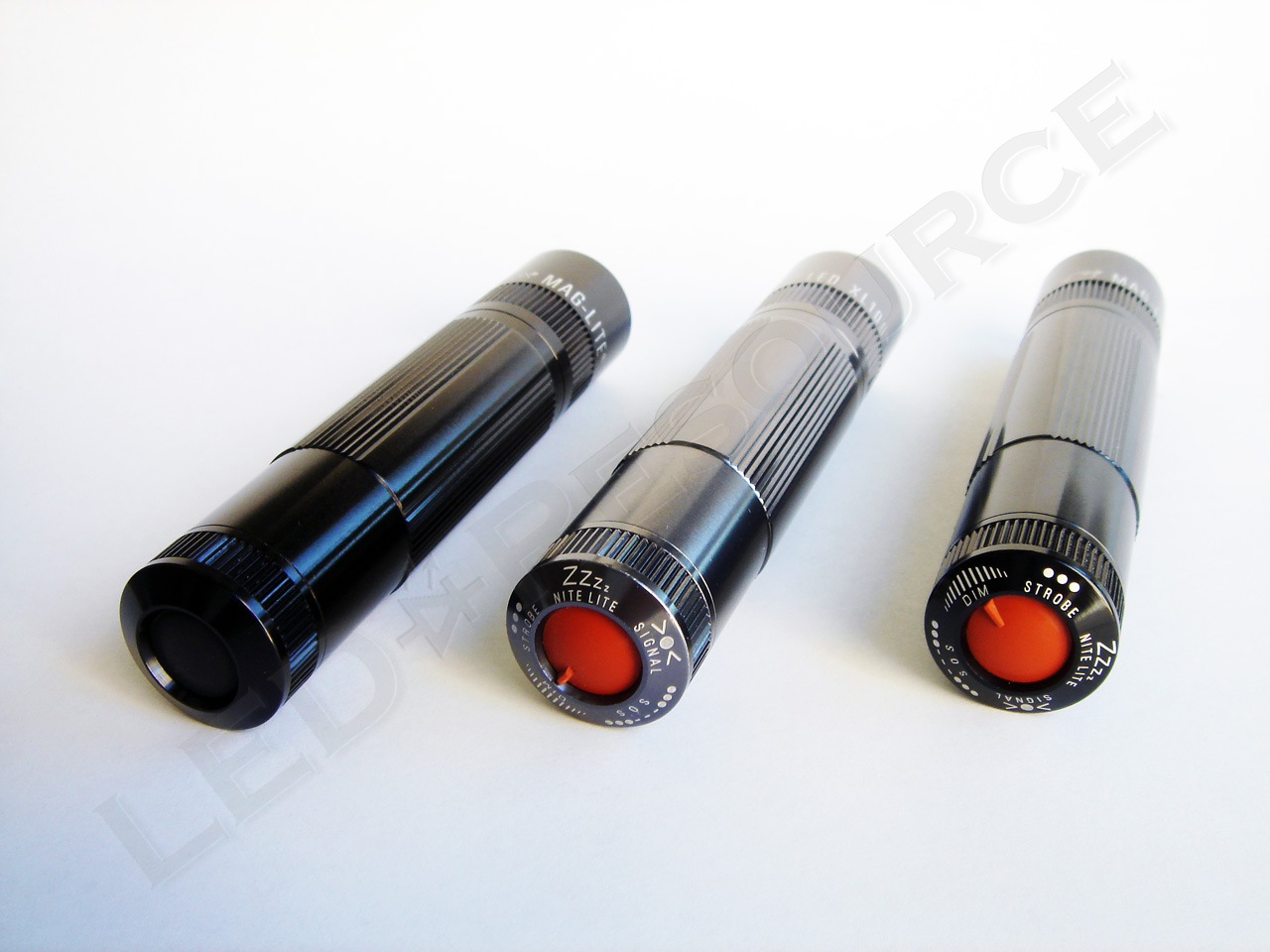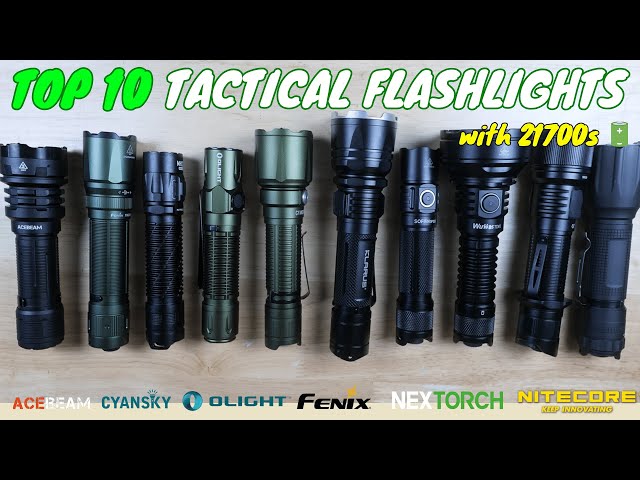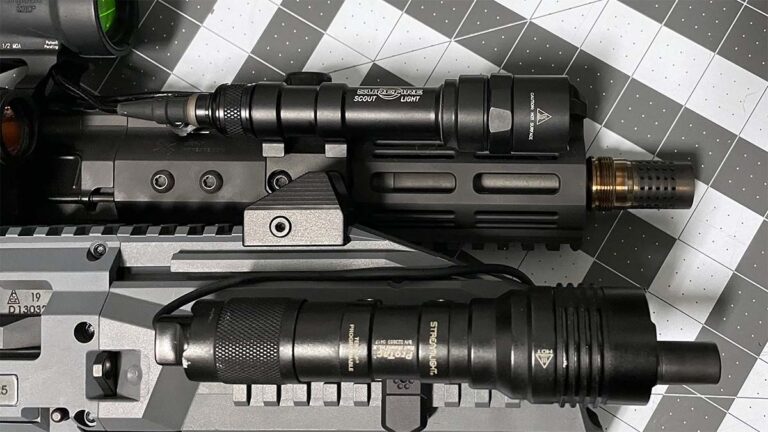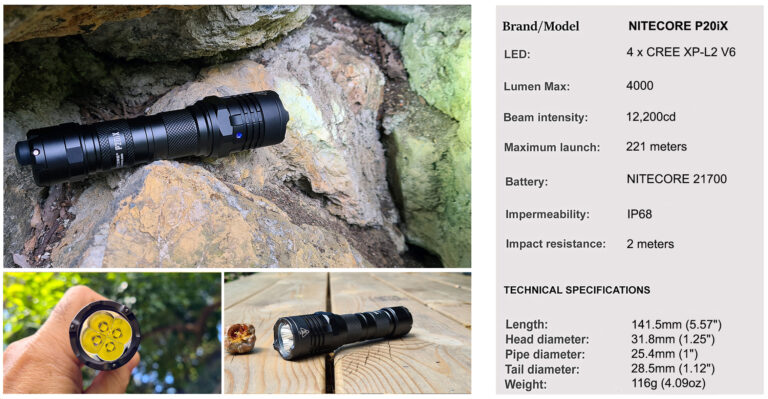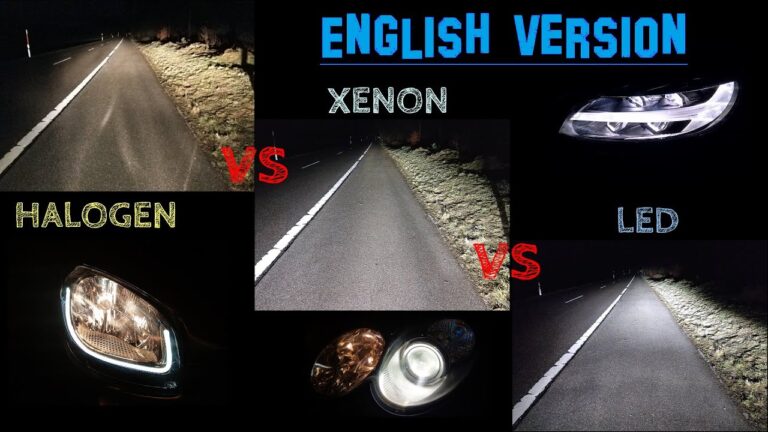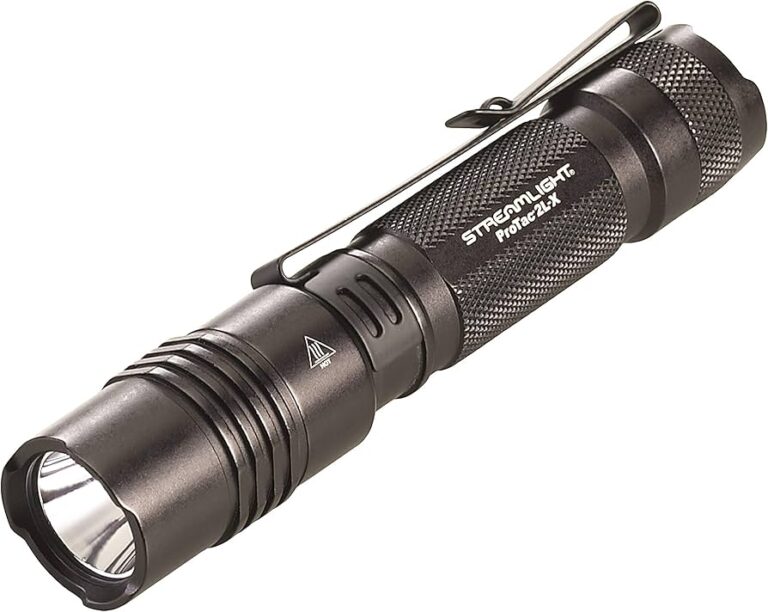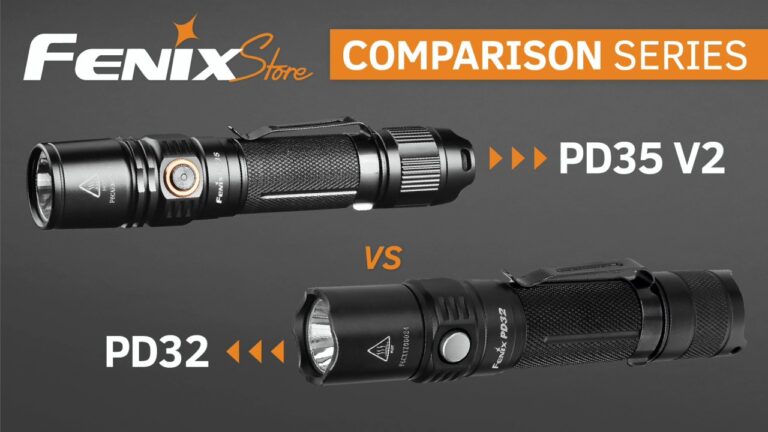Maglite XL50 vs XL200: The Ultimate Flashlight Showdown
In this article, we will compare two of Maglite’s most popular flashlights: the XL50 and the XL200. Both models are designed for durability, functionality, and brightness, making them suitable for various applications from everyday carry to professional use.
The XL50 features a simple three-mode interface with a maximum output of 200 lumens, while the XL200 boasts five modes and a slightly lower maximum output of 172 lumens but incorporates advanced features like motion control. We will delve into their specifications, usability, design, and performance to help you decide which flashlight best suits your needs.
Table of Contents
- Overview of Maglite Brand
- Specifications Comparison
- User Interface and Functionality
- Beam Performance
- Durability and Design
- Pricing and Value
- Customer Reviews and Feedback
- Ideal Use Cases
- FAQ
- Conclusion
Overview of Maglite Brand
Company Background
Mag Instrument, Inc. was founded by Anthony Maglica in 1974 in Ontario, California.
The first Maglite was introduced in 1979, establishing a reputation for high-quality portable lighting solutions. The brand is well-known for its robust construction, innovative designs, and reliable performance.
Evolution of Maglite Products
Since the launch of its first model, Maglite has continually evolved its product line. Notable innovations include the transition from incandescent to LED technology, which significantly enhanced brightness and energy efficiency.
The introduction of the XL series exemplifies Maglite’s commitment to adapting to modern user needs while maintaining traditional durability.
Significance of the XL Series
The XL series, including the XL50 and XL200, represents a shift towards more compact, user-friendly flashlights. These models are designed for both casual users and professionals who require reliable illumination.
The XL series showcases Maglite’s technological advancements while adhering to its longstanding values of durability and functionality.
Timeline of Maglite Product Releases
| Year | Product | Notable Features |
|---|---|---|
| 1979 | First Maglite | Introduced variable-focus beam |
| 2006 | LED Maglites | Transition to LED technology |
| 2010 | XL50 | Three modes with 200 lumens |
| 2011 | XL200 | Five modes with advanced features |
This timeline highlights the progressive nature of Maglite products, emphasizing the company’s commitment to innovation while maintaining the quality that users expect.
Specifications Comparison
Battery Type and Life
| Model | Battery Type | Runtime (High) | Runtime (Low) |
|---|---|---|---|
| XL50 | 3 AAA | 8.75 hours | 36 hours |
| XL200 | 3 AAA | 2.5 hours | 218 hours |
The XL50 offers a shorter runtime on high but excels in brightness, while the XL200 provides extended runtime on low, catering to different user preferences. Both models use common AAA batteries, making them easily accessible and convenient for users.
Brightness and Modes
| Model | Max Output (Lumens) | Modes |
|---|---|---|
| XL50 | 200 | High, Low, Strobe |
| XL200 | 172 | High, Low, Strobe, Nite Lite, SOS |
The XL50 shines with a higher maximum output compared to the XL200 but lacks the versatility of additional modes. The XL200’s multiple modes, including the Nite Lite and SOS signals, enhance its usability for various scenarios, making it more versatile for professionals and outdoor enthusiasts alike.
Build Quality and Materials
| Model | Material | Weight (With Batteries) |
|---|---|---|
| XL50 | Anodized aluminum | 3.68 oz |
| XL200 | Anodized aluminum | 3.68 oz |
Both flashlights are constructed from durable anodized aluminum, ensuring resistance to corrosion and wear. Their lightweight design makes them practical for everyday carry while maintaining robust performance standards.
User Interface and Functionality
Mode Selection Process
The XL50 features a straightforward three-mode interface, allowing users to toggle through high, low, and strobe settings with a simple push of the tailcap button. In contrast, the XL200 employs a more complex “QuickClick” method for mode selection, which includes five distinct functions.
Users can access different modes by clicking the tailcap switch a specific number of times.
Motion Control Features
The XL200 incorporates an innovative motion control feature that allows users to adjust the brightness by rotating the flashlight. This feature, while advanced, has received mixed reviews regarding its practicality in real-world usage.
The XL50, lacking this feature, provides a more traditional and user-friendly experience.
Tail Cap Design
The tail cap designs of both models are functional yet distinctive. The XL50’s push-button switch is straightforward, while the XL200’s electronic switch incorporates motion features, adding complexity.
However, some users have reported that the electronic switch may be more prone to accidental activation compared to the more traditional push-button design of the XL50.
Beam Performance
Beam Distance
| Model | Throw Distance (Meters) |
|---|---|
| XL50 | 224 |
| XL200 | 138 |
In terms of beam distance, the XL50 outperforms the XL200, with a throw distance of 224 meters compared to the XL200’s 138 meters. This makes the XL50 more suitable for long-range visibility, which is advantageous in outdoor or emergency situations.
Beam Pattern and Quality
The XL200’s beam pattern is noted for its clean and consistent illumination, providing good side spill for broader visibility. In contrast, while the XL50 also offers a strong focused beam, some users may prefer the XL200’s versatility in different lighting environments due to its multiple modes.
Performance in Different Environments
Both flashlights perform well in varied environments. However, the XL200’s strobe and Nite Lite modes make it more adaptable for situations where versatility is key, such as camping or tactical scenarios.
The XL50’s higher brightness is beneficial for situations needing intense light output.
Durability and Design
Water and Impact Resistance
| Model | Water Resistance Rating | Drop Resistance |
|---|---|---|
| XL50 | IPX4 | 1 meter |
| XL200 | IPX4 | 1 meter |
Both models are rated with an IPX4 water resistance, making them suitable for splashes and light rain but not for submersion. The drop resistance of one meter applies to both models, providing confidence in their durability for everyday use.
Design Ergonomics
Both the XL50 and XL200 are designed with ergonomics in mind. Their compact size and lightweight construction make them easy to handle and carry.
The knurling on the body provides a secure grip, although some users have expressed a desire for more aggressive texturing in high-use scenarios.
Material Quality
Constructed from anodized aluminum, both models exhibit excellent quality and resistance to corrosion, ensuring longevity even under demanding conditions. The choice of materials reflects Maglite’s commitment to durability and performance in various environments.
Pricing and Value
Retail Pricing
| Model | MSRP | Typical Market Price |
|---|---|---|
| XL50 | $63.99 | $40 – $50 |
| XL200 | $59.99 | $40 – $50 |
The pricing for both models suggests they are competitively positioned in the market, often found at similar price points. The XL50 typically retails slightly higher due to its higher output, while the XL200 offers more features for users needing versatility.
Comparison of Long-Term Value
When considering long-term value, the XL200’s additional modes and features may justify its cost for some users, particularly in professional settings. However, for those primarily needing a straightforward flashlight, the XL50’s simplicity and brightness could be more appealing.
Warranty and Customer Support
Both models come with a limited lifetime warranty, emphasizing the quality and durability that Maglite promises. This warranty adds significant value, as it ensures users can trust their investment in a reliable lighting solution.
Customer Reviews and Feedback
Positive Feedback
| Model | Average Rating | Common Praise |
|---|---|---|
| XL50 | 4.6/5 | Brightness, Durability |
| XL200 | 4.5/5 | Versatility, Features |
Customer feedback reflects high satisfaction with both models, with the XL50 praised for its brightness and robust design, while the XL200 receives accolades for its versatility and advanced features.
Common Issues
Some users have reported issues with the complexity of the XL200’s user interface, particularly regarding the motion control feature. In contrast, the XL50’s simplicity is both a strength and, for some, a limitation due to fewer modes available.
Overall User Satisfaction
Overall, both flashlights maintain a solid reputation among users, with many appreciating the build quality and performance of each model. The choice often comes down to personal preference regarding usability versus brightness.
Ideal Use Cases
Best Applications for XL50
The XL50 is ideal for users who prioritize brightness and simplicity. It is well-suited for everyday carry, emergency use, and outdoor activities where high luminosity is essential.
Best Applications for XL200
The XL200 is perfect for professionals requiring a multifunctional flashlight. Its myriad modes make it suitable for tactical situations, camping, and various outdoor activities where adaptability is key.
Recommendations for Professionals vs. Casual Users
For professionals, the XL200’s advanced features and modes provide enhanced functionality, while casual users may find the XL50’s straightforward operation appealing for general use.
FAQ
What are the main differences between the Maglite XL50 and XL200?
The primary differences lie in mode selection and brightness. The XL50 features a simple three-mode system with a maximum output of 200 lumens, while the XL200 offers five modes with a maximum output of 172 lumens and incorporates motion control features.
How do the battery lives compare between the two models?
Both models use three AAA batteries, but the XL50 has a shorter runtime on high (8.75 hours) compared to the XL200’s 2.5 hours on high. However, the XL200 excels in low mode, offering up to 218 hours of runtime.
Can these flashlights be used with rechargeable batteries?
Yes, both models can use rechargeable batteries, such as nickel-metal hydride (NiMH) batteries. This feature enhances their cost-effectiveness and environmental sustainability.
Is the XL200 waterproof?
While the XL200 is not fully waterproof, it does have an IPX4 rating, making it water-resistant to splashes. It can withstand brief encounters with water but should not be submerged.
What is the warranty period for each flashlight?
Both the XL50 and XL200 come with a limited lifetime warranty, reflecting Maglite’s confidence in the durability and quality of their products.
Conclusion
In conclusion, both the Maglite XL50 and XL200 offer unique features tailored to different user needs. The XL50 may appeal to those seeking simplicity and higher brightness, while the XL200 provides advanced functionalities and versatility that may suit professionals better.
When choosing between the two, consider your specific requirements and usage scenarios to select the perfect flashlight for your needs.

